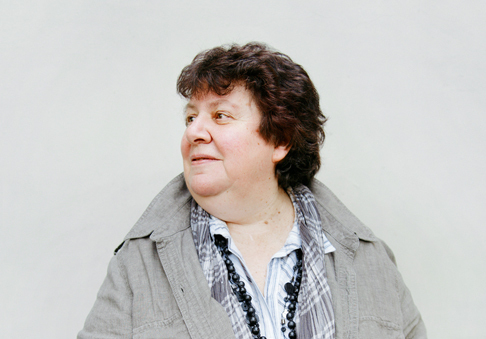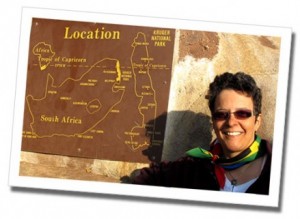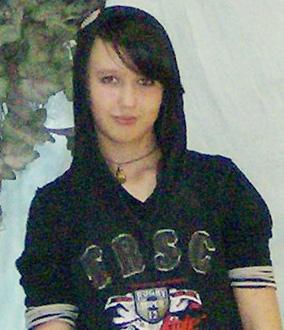
Do you like this story?
Fresh off of an that was announced earlier today, Acquia co-founder Dries Buytaert is feeling pretty good about the open source business model. The company that he co-founded in 2007 sells software and products that leverage Drupal, the open source project he started in 2000.
has grown from Buytaert’s experiment with new technologies into a worldwide group project that includes thousands of programmers. The , Harvard and all use Drupal to run their sites. is just one of many companies profiting from the volunteer project.
Buytaert recently spoke with Mashable about the value of open source projects and the role that commercial interests play in their success.
-
1. What do you think makes an open project successful?
In the case of Drupal, it’s really the community of people who are contributing to the project. We have a large community; we have thousands of developers, and each of those developers helps design modules. Just to give you an idea, we have 7,000 modules on the website. And it’s the fact that all of these people contribute these modules that allows us to get both scale and reach.
-
2. How did you build such a strong community?
I’ve been working on Drupal for 10 years. There’s no quick-rich formula. It definitely takes a lot of time to build a community. I spent 10 years working on Drupal and getting Drupal where it is today. For us, a big part of building the community was offline events. We started doing meetups for example, and we also started organizing Drupal conferences.
-
3. When you started Drupal, why did you decide to make it an open source project?
To be honest, it was sort of by accident in a way. I started working on Drupal really for two reasons. One, around the time 10 years ago, I wanted to learn more about PHP and MySQL…And secondly, I had kind of an itch to scratch, which was that I needed a message board. And so I figured I’ll write it with MySQL and PHP so I can learn more about it. And then I started adding to it, restructuring it, changing it to a modular framework. I added a lot of experimental features like blogging. And this was the time when blogging wasn’t really called blogging yet. And so the feature was called public diaries at the time, and RSS feeds were just being defined at the time. In a way, for me Drupal in the early days was an experimental platform to dabble around in different kinds of technologies.
I built a website with that that was called Drop.org, which was kind of the public-facing site of those experiments. And that attracted an audience of people interested in the future of the web who were excited about the latest and greatest things… At the time, Drop.org worked exactly like Digg works; everybody could submit stories and we could vote on the stories and the best stories would go to the main page. And people started to leave suggestions like, “If you change the algorithm like this and this the voting will work better.” At some point, I basically said, “Thank you for all of the suggestions, but I have my own agenda –- I want to work on the things I want to work on –- but it would be great if you would work on the things that you’re passionate about.” So we decided to make the source code behind my website available as open source.
-
4. If the concept of open source were to disappear tomorrow, how would it affect the Internet?
I think that would be terrible. Obviously, so much of the Internet is powered by open source. One of the things that we did at Acquia was we built a crawler to crawl all of the websites that exist and do some kind of fingerprinting to see how many of those sites are using Drupal versus WordPress versus Joomla versus a whole bunch of other CMSs. More than 10% of all the websites in the world are run by Drupal, WordPress and Joomla — just these three. And all three are open source CMSs, so if you just count those three CMSs, you would lose 10% of the websites.
And its not just the CMSs; I mean, most websites run Apache or MySQL. Even in the large companies like Google, even though they may not make available the code behind their search algorithms and stuff, a lot of those things have code that uses open source components. Some of the largest companies in the world are really taking advantage of open source.
-
5. You mentioned some of the other self-publishing websites that are similar to yours. What do you see as Drupal’s niche in CMS?
I think what sets Drupal apart from the others is that it’s truly a platform. If you look at WordPress, it’s really good at blogging. If you look at Joomla, it’s really good at building smaller, corporate websites. That’s what those technologies excel at. It doesn’t mean they can’t be used in other ways… but I think that Drupal is unique in that it scales from really small to really large on one dimension. There are a lot of people who use Drupal on sort of the $10-per-month hosted accounts, and they use it for blogging, they use it for all sorts of different kinds of things. But also it scales up to some of the largest websites in the world — like the White House website runs on Drupal, which I think would be a stretch on some of these other systems.
What all of these vendors have in common is that they’re changing the way people run websites. All of these open source CMS systems are really disturbing commercial CMS vendors. We used to win on price, because open source is cheaper, but I think recently we started to win on features as well… And the reason is that the open source development model allows us to keep up with the rapid pace of innovation online. It’s really hard for a commercial organization that has 30 developers or even 50 developers to keep up with the developments on the web. There are new services launching every day. And having a developer community of thousands and thousands of people allows us to keep up with that pace of innovation.
-
6. You’re the leader of Drupal, which is a volunteer open source project, and you’re also the founder of Acquia, which is a company that sells products and services related to Drupal. How do you balance those interests?
At the end of the day, it’s very easy. What is best for Drupal is going to be best for Acquia. I mean, Acquia will never be a successful company unless Drupal is successful. So our interests are very much aligned.
-
7. You recently wrote a about the role of commercialization in open source projects. What do those interests add or detract from the project?
One of the things I’ve learned from Drupal is that commercial interests are a really good thing. But they have to be managed properly. For example, I think that the reason Drupal is successful is the community. I think the reason we have such a large community is because so many people make money with Drupal. They use Drupal to build websites for their customers. So it’s a tool that allows people to make money, and because they’re making money with Drupal, they’re invested in the project and they contribute to the project because their business depends on it.
What that means is that development is often driven by commercial interest. That’s a very good thing because that gives us the velocity that we have. What’s important is that decision making and leadership is not influenced by commercial interests…we need to make decisions based on technical merits, because they’re important for the long-term success of Drupal, not because it’s commercially interesting. And that’s something we’ve always been aware of and I think I’ve always balanced that very well. Every decision with Drupal is discussed in a democratic manner.
What do you make of Buytaert’s comments? Open source in general? His approach to Drupal? Let us know in the comments below.
Автор:
Оригинал:


 Клуб журналистов-оптимистов "СМИ-2020: Мы - местные!">>>
....................................
Клуб журналистов-оптимистов "СМИ-2020: Мы - местные!">>>
....................................

 О горящих глазах, классической музыке и инструментах онлайн-журналистики
О горящих глазах, классической музыке и инструментах онлайн-журналистики Интервью с Мариной Разбежкиной: «Человек приходит в вуз в 18 лет, а выходит 80-летним»
Интервью с Мариной Разбежкиной: «Человек приходит в вуз в 18 лет, а выходит 80-летним» Семён Винокур: Как я снимал фильм про любовь...
Семён Винокур: Как я снимал фильм про любовь... Снимаем и монтируем видео. Правила
Снимаем и монтируем видео. Правила Mindy McAdams: Поддерживайте и развивайте свои навыки
Mindy McAdams: Поддерживайте и развивайте свои навыки

 Герман Клименко: Жертвы революции
Герман Клименко: Жертвы революции Библиотека АНРИ: «Стоп, коррупция: журналистская практика»
Библиотека АНРИ: «Стоп, коррупция: журналистская практика» Областная дума за сотрудничество с «Эхо недели»
Областная дума за сотрудничество с «Эхо недели» "Эхо недели": В Железногорске пропала 15-летняя девушка
"Эхо недели": В Железногорске пропала 15-летняя девушка "Эхо недели": Железногорский суд не восстановил в должности бывшего директора школы №9
"Эхо недели": Железногорский суд не восстановил в должности бывшего директора школы №9 "Эхо недели": В Железногорске иномарка сбила ребенка
"Эхо недели": В Железногорске иномарка сбила ребенка Советы для журналистов, снимающих видео: съемка и фокус
Советы для журналистов, снимающих видео: съемка и фокус Ученые посчитали типичное время оценки сайта
Ученые посчитали типичное время оценки сайта Как извлечь максимальную пользу из создания видео для социальных сетей
Как извлечь максимальную пользу из создания видео для социальных сетей Пять альтернативных бизнес-моделей для журналистики
Пять альтернативных бизнес-моделей для журналистики ← Подпишись на RSS!
← Что такое RSS?
← Подпишись на RSS!
← Что такое RSS?
 ← E-mail рассылка
← E-mail рассылка
Комментарии